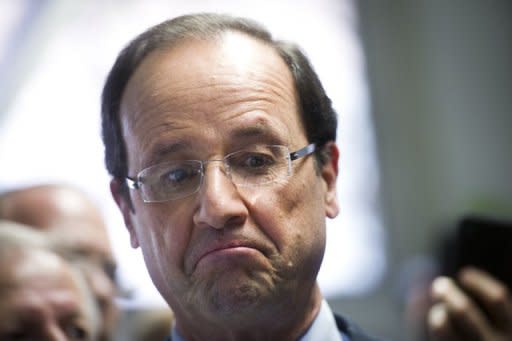Japan warns France to stick to fiscal reform plans
Japan on Tuesday warned French president-elect Francois Hollande to keep the nation's fiscal discipline in place amid worries that the new leader will overspend in a bid to boost the economy. Sunday's victory for Socialist Hollande -- and the huge losses for the two main parties in Greece -- came amid a backlash against the austerity measures put in place across Europe to tackle the region's debt crisis. But Finance Minister Jun Azumi told a regular news conference in Tokyo: "Our stance is unchanged. "We want (France) to do what has been decided so far, and I'd like to tell them about that if there is the opportunity," he added, according to Dow Jones Newswires. "I don't know whether Mr Hollande will immediately act on what he has said in heated debates during the election campaign. "But realistically, I think it is impossible (for European nations) to give up on fiscal-rebuilding efforts," the finance minister said, adding that he was "convinced (Hollande) will respect this movement." Hollande ousted conservative Nicolas Sarkozy from the Elysee Palace on a platform promising growth rather than further cuts, which has worried many European leaders who fear it will lead to another region-wide crisis. Azumi said Monday that France's new leader "fully understands" the need to rebuild Europe's finances, despite his calls to review the European Union's fiscal pact to include measures to spur growth. The treaty now stresses austerity efforts. "I want him to act based on understanding the schemes and thinking that we, the IMF, and the G7 have cultivated up to now," Azumi said. Azumi also warned on Monday that the election results in France and debt-strapped Greece could have a "destabilising" effect on markets. He added said he would respond "properly and appropriately" to any speculative-driven gains in the yen, which makes Japanese exports less competitive, and reduces the value of their foreign income. Japan has previously intervened in currency markets to tame the yen's soaring value amid fears over its impact on the world's third-largest economy. "We must closely watch whether there are speculative movements taking advantage of political factors," he told reporters Monday. Following the elections, the euro skidded to $1.2954 in early trade Monday, its lowest level since late January, while also slumping to 103.22 yen at one stage, its worst since mid-February. However, it rebounded late Monday and on Tuesday it was at $1.3033 and 104.24 yen. Japanese Prime Minister Yoshihiko Noda congratulated Hollande after his victory during a brief telephone call and told him France was a "strategic partner" of Japan, according to a foreign ministry official. The pair agreed to work together on Europe's debt crisis and North Korea's nuclear programme, the official added. Last month, Japan pledged about $60.0 billion to the International Monetary Fund, calling the contribution a critical part of the US-based organisation's bid to boost a global firewall against Europe's debt crisis. Azumi said at the time that Tokyo's help was "crucial not only to the eurozone but also to Asia and Japan if we are to ensure that the crisis is completely over." The move came as the country struggles with a strong yen and sinking demand in key European markets, which has dented the export-oriented economy. Tokyo has also been a regular buyer of debt issued by the European Financial Stability Facility bailout fund since last year.



